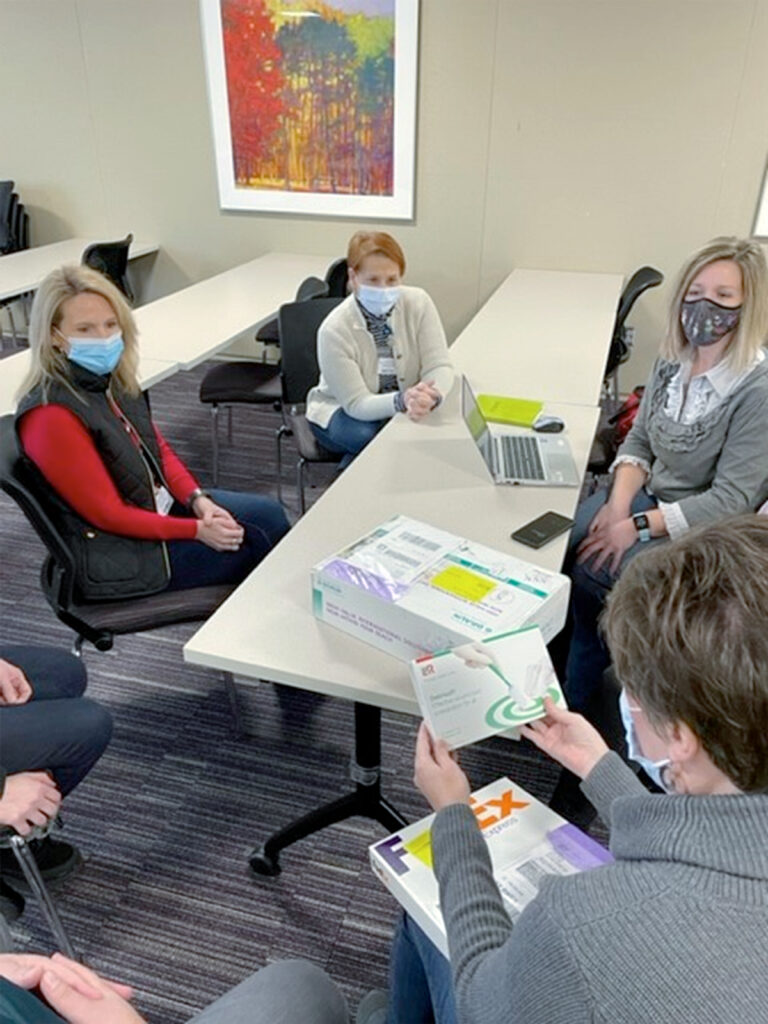By Pete Mercer

Supply chain is an industry with a lot of diversity: people from different backgrounds and experiences all come together to develop faster and more efficient processes for distributing products across the country. This diversity can lend unique perspectives to the process.
Value Analysis is a critical piece of the greater puzzle of the healthcare supply chain, an evidence-based and data-driven process that equips clinicians with the tools they need to provide better patient care. Those who work in Value Analysis are constantly analyzing and evaluating the efficacy and price point of healthcare products used in hospitals and clinics to treat patients.
Operating with a clinical perspective
At the Mayo Clinic, Terri Nelson, RN, Director of Value Analysis Supply Chain Management, and her team operate the Value Analysis department with a clinical perspective that empowers them to make better and more informed decisions about product evaluations. The end game for her team is to always make sure that the patient is taken care of.
Nelson said, “A clinical background is so important because we have had so many disruptions. Clinicians are already at the end of their rope with dealing with COVID and patients, but now they have to have these disruptions continually? Because we can understand them, we try to bring solutions. That’s why Value Analysis should exist: to take some of that stress off of the clinical staff and help them to make a decision that supports them.”
Her team has nine people on it; six are clinical value analysts, the other three, supply chain management analysts. The clinical value analysts all have a background in nursing like Nelson. “In Value Analysis, you’ll find most individuals have a clinical background of some kind. Value Analysis is a process improvement tool, and you need to have a clinical perspective in order to do that efficiently.”
For Nelson, this background is a critical component to running a successful Value Analysis program. “Nurses are always thinking about, you came in as a patient, you started here. But I know we’re going to do X, Y, and Z. And you might end up in three other locations. So, I have to pre-plan for it. It’s the same thing within the supply chain. If I get a product that’s not functioning well, what are my options to make sure there’s not a disruption of patient care to that?”
Why nurses? Nelson admits that there’s a little bit of bias towards nursing. She said, “Nurses are a jack of all trades. We knew a little bit about everything and how it relates to patient care especially. Mayo has acute care and non-acute care, and you’ll find that there are a fair number of nurses because we are a jack of all trades.” Her team is successful because of that foundation of clinical knowledge, which has helped them to find better, long-lasting solutions for Mayo.
Delivering on the culture of Mayo
Part of what makes having a nursing background in Value Analysis so valuable is their ability to deliver on what makes up the culture of the Mayo Clinic. Mayo is a physician-led community that is focused foremost on the needs of the patient. Because nursing requires you to be so hands-on with the patients, that gives a unique perspective into what role these products should be playing and how they should be helping.
Nelson’s team looks at quality and outcome measures, length of stay, and what type of patient you’re providing care for. “That’s why having that clinical background is so important. They understand the culture, they understand how procedures and processes are done.”
Her team had to identify clinical staff that would sit in the organization-wide crisis meetings to discuss what they could get, what they couldn’t get, and what needed to be done. “We needed to conserve product. But how? We were getting that information from clinical areas to identify how to do that. If we’re going to standardize product, which are the ones that we really need to make sure that we safeguard whatever is going to happen to it?” Clinical experience coupled with longevity grants a variety of experiences that you can pull on to make better and more informed decisions.
Navigating the workday in a pandemic
Nelson’s team is still working from home and has been since April 2020. While the basic administrative pieces of the Value Analysis process can be done from home, the intricacies do require a visit to one of the Mayo campuses. The only way to truly conduct a Value Analysis review of a product is to see it in person, which can require a little bit of travel, depending on which campus the team member is going to.
Acclimating to the work-from-home style took a little bit of time, but they all utilize Microsoft Teams to keep in touch about the various projects and everyone’s workload. It’s also affected how they communicate with suppliers to discuss the products they are working with.
Nelson said, “One of the lessons we learned early on is to work with suppliers and identify, based on all of these we have, which ones understand our organization and its needs. Use their expertise, tell us which ones have the same attributes. That’s a big part of what we’ve learned in the past two years, how we need to look at how we do things, and we should have less variation in some of these truly commoditized types of activities.”
Despite these challenges and changes to processes, Nelson and her team are continuing to provide Mayo with a clinical perspective that benefits the entirety of the organization. They keep in touch with weekly meetings to discuss the weekend and what’s going on in their personal lives. It’s an informal, but mandatory meeting to maintain that level of connection and culture that’s easier to establish face-to-face. “In a telework environment, you need to allow the flexibility for your team to just spend time together and catch up.”
